School Leadership 2.0
A Network Connecting School Leaders From Around The Globe
What to Do About Cheating? by C. M. Rubin
The Global Search for Education: What to Do About Cheating?
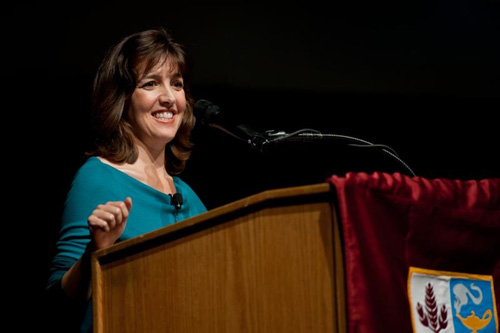
Here are five misconceptions about a serious and widespread problem in education today: cheating isn't a problem at my kid's school; kids cheat in the same ways today as they did in the past; only kids who struggle in school cheat; students who cheat don't know right from wrong; cheating is unpredictable.
Challenge Success, a non-profit organization at the Stanford University School of Education, argues that more awareness is needed among parents and teachers about cheating misconceptions in order to positively affect academic dishonesty. "Cheat or Be Cheated," a recently released Challenge Success white paper, discusses the evidence that dispels these misunderstandings based on its review of fifteen landmark studies on cheating in addition to their own research with schools and students.
I chatted with Dr. Denise Pope, Challenge Success co-founder and senior lecturer at Stanford University, about the report and the solutions she believes parents and educators can adopt immediately to help curb cheating behavior and encourage integrity.
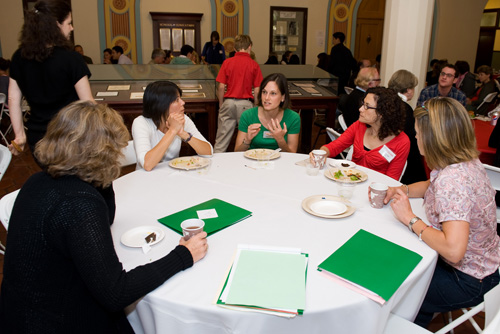
The white paper indicates that students cheat more when they believe that grades and performance are valued in their classrooms and less when they believe that learning and mastery are valued. If we reduce testing will we reduce cheating?
We know that if you change the forms of assessment, you can definitely decrease cheating behavior. Students are less likely to cheat on an assignment where they produce multiple drafts for review or on an assignment that is personalized -- where they need to tie a concept or theory to their own life experiences. Even on a test, a teacher can reduce the likelihood of cheating by asking for in-depth responses as opposed to fill in the blanks or multiple choice, and testing for mastery/deep understanding as opposed to memorization of content. Research shows that students cheat more when they believe that grades and performance are valued in their classrooms and less when they believe that learning, deep understanding and mastery are valued.
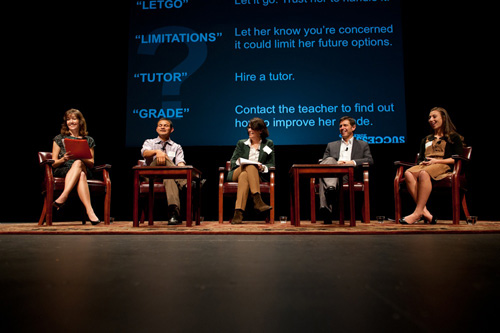
Students' perceptions of their teachers can also affect cheating behavior. Does this mean that when teachers are competent and caring, children cheat less?
When students perceive that their teachers are competent and caring, then they are less likely to cheat in those classrooms. Most teachers care about their students, but the students themselves have to believe it. The same is true for competency: the students need to perceive it. We encourage teachers to make their caring more explicit - learn the students' names, ask about their lives outside of class, offer to help with assignments, offer more opportunities for student choice and voice in the classroom, and show that you truly support the kids and want them to succeed. An increased focus on social and emotional learning can improve the classroom climate and help kids see that the teacher truly cares.
Students who have strong, positive "school identification" are less likely to cheat. True or false?
True. Students who value school and feel like they belong in the school community are less likely to cheat. This holds true regardless of how these students are doing in school. If kids feel like they are part of a strong community and they value the learning that goes on there, they will be more likely to work honestly and with integrity. We encourage parents and educators to help students get involved in school activities, find ways for kids to get to know school faculty and staff, and help kids make friends at school so that they have a more positive school identification.
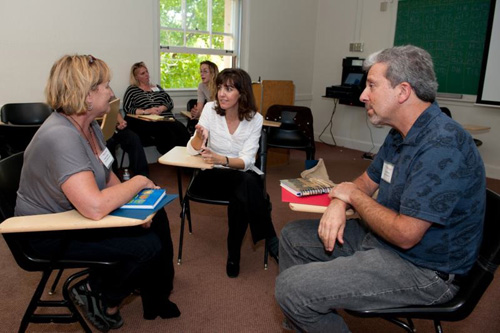
When students lack confidence in their academic capabilities they are more likely to cheat. True or false?
True. Several studies show that students who reported low feelings of competence and capability were more likely to cheat. Students get to a point where they believe, "There is no way that I can get a good grade on my own. I am not smart enough and don't have the skills to do this." These kids tend to think cheating is their only option. Educators and parents can encourage honesty and integrity, and at the same time find ways to build a support structure for learning so that all kids can improve their skills and feel capable.
Students cite trying to "get ahead" and getting into the "right" college along with a school culture that is "overly focused on achievement" as justifications for cheating. Are students more likely to cheat when they feel achievement pressure from parents, teachers and peers?
Yes. Students who feel pressure from teachers, parents and peers to get top grades and get into the "right" college are more likely to cheat. They describe the culture at these high-achieving schools as "cut-throat competitive" and promoting a "succeed at all costs" mentality that leads to cheating on tests and assignments.
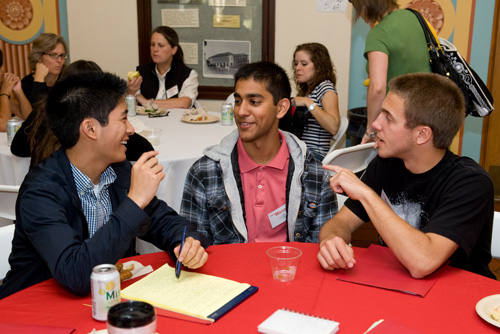
Can you share five suggestions that both educators and parents can put in place to help curb cheating behavior and encourage integrity?
1) Educators and parents should model integrity and maintain high standards for honesty. They should discuss integrity with the students, have clear and consistent policies for handling infractions, and emphasize that cheating will not be tolerated.
2) Educators and parents should emphasize mastery and learning rather than performance and grades. This means encouraging problem-based learning and focusing on deep understanding. Instead of focusing on the final performance results of a test or paper (in other words, the grades), talk about the learning and revision process and improvement over time.
3) Educators and parents should encourage positive school identity and help kids make connections at school that will help them feel like they belong and are valued.
4) Educators and parents should promote healthy assessment and grading policies. Parents should avoid offering external rewards such as money or privileges for students who complete their work or bring home good grades, and instead should focus on encouraging intrinsic motivation. Teachers should use multiple assessments to allow students more opportunities to show what they know and improve over time, and schools might consider eliminating "zeros" and class rankings.
5) And all adults -- in school and out -- should learn not to confuse "rigor" with "load." Since research shows that stressed-out and exhausted students may be more likely to cheat, schools and parents may want to abide by the "less is more" rule. Teachers can determine how much homework is really necessary to assign and be sure that students understand the purpose of each assignment. Parents can work on ways to reduce stress at home by helping students cut back on the number of extracurricular and enrichment activities and focusing on depth as opposed to breadth.
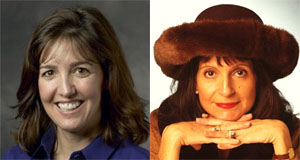
Photos courtesy of Challenge Success, Stanford University School of Education
In The Global Search for Education, join me and globally renowned thought leaders including Sir Michael Barber (UK), Dr. Michael Block (U.S.), Dr. Leon Botstein (U.S.), Professor Clay Christensen (U.S.), Dr. Linda Darling-Hammond (U.S.), Dr. Madhav Chavan (India), Professor Michael Fullan (Canada), Professor Howard Gardner (U.S.), Professor Andy Hargreaves (U.S.), Professor Yvonne Hellman (The Netherlands), Professor Kristin Helstad (Norway), Jean Hendrickson (U.S.), Professor Rose Hipkins (New Zealand), Professor Cornelia Hoogland (Canada), Honourable Jeff Johnson (Canada), Mme. Chantal Kaufmann (Belgium), Dr. Eija Kauppinen (Finland), State Secretary Tapio Kosunen (Finland), Professor Dominique Lafontaine (Belgium), Professor Hugh Lauder (UK), Professor Ben Levin (Canada), Lord Ken Macdonald (UK), Professor Barry McGaw (Australia), Shiv Nadar (India), Professor R. Natarajan (India), Dr. Pak Tee Ng (Singapore), Dr. Denise Pope (US), Sridhar Rajagopalan (India), Dr. Diane Ravitch (U.S.), Richard Wilson Riley (U.S.), Sir Ken Robinson (UK), Professor Pasi Sahlberg (Finland), Andreas Schleicher (PISA, OECD), Dr. Anthony Seldon (UK), Dr. David Shaffer (U.S.), Dr. Kirsten Sivesind (Norway), Chancellor Stephen Spahn (U.S.), Yves Theze (Lycee Francais U.S.), Professor Charles Ungerleider (Canada), Professor Tony Wagner (U.S.), Sir David Watson (UK), Professor Dylan Wiliam (UK), Dr. Mark Wormald (UK), Professor Theo Wubbels (The Netherlands), Professor Michael Young (UK), and Professor Minxuan Zhang (China) as they explore the big picture education questions that all nations face today.
The Global Search for Education Community Page
C. M. Rubin is the author of two widely read online series for which she received a 2011 Upton Sinclair award, "The Global Search for Education" and "How Will We Read?" She is also the author of three bestselling books, including The Real Alice in Wonderland.
Follow C. M. Rubin on Twitter: www.twitter.com/@cmrubinworld
JOIN SL 2.0
SUBSCRIBE TO
SCHOOL LEADERSHIP 2.0
Feedspot named School Leadership 2.0 one of the "Top 25 Educational Leadership Blogs"
"School Leadership 2.0 is the premier virtual learning community for school leaders from around the globe."
---------------------------
Our community is a subscription-based paid service ($19.95/year or only $1.99 per month for a trial membership) that will provide school leaders with outstanding resources. Learn more about membership to this service by clicking one of our links below.
Click HERE to subscribe as an individual.
Click HERE to learn about group membership (i.e., association, leadership teams)
__________________
CREATE AN EMPLOYER PROFILE AND GET JOB ALERTS AT
SCHOOLLEADERSHIPJOBS.COM
New Partnership
Mentors.net - a Professional Development Resource
Mentors.net was founded in 1995 as a professional development resource for school administrators leading new teacher induction programs. It soon evolved into a destination where both new and student teachers could reflect on their teaching experiences. Now, nearly thirty years later, Mentors.net has taken on a new direction—serving as a platform for beginning teachers, preservice educators, and
other professionals to share their insights and experiences from the early years of teaching, with a focus on integrating artificial intelligence. We invite you to contribute by sharing your experiences in the form of a journal article, story, reflection, or timely tips, especially on how you incorporate AI into your teaching
practice. Submissions may range from a 500-word personal reflection to a 2,000-word article with formal citations.
You need to be a member of School Leadership 2.0 to add comments!
Join School Leadership 2.0